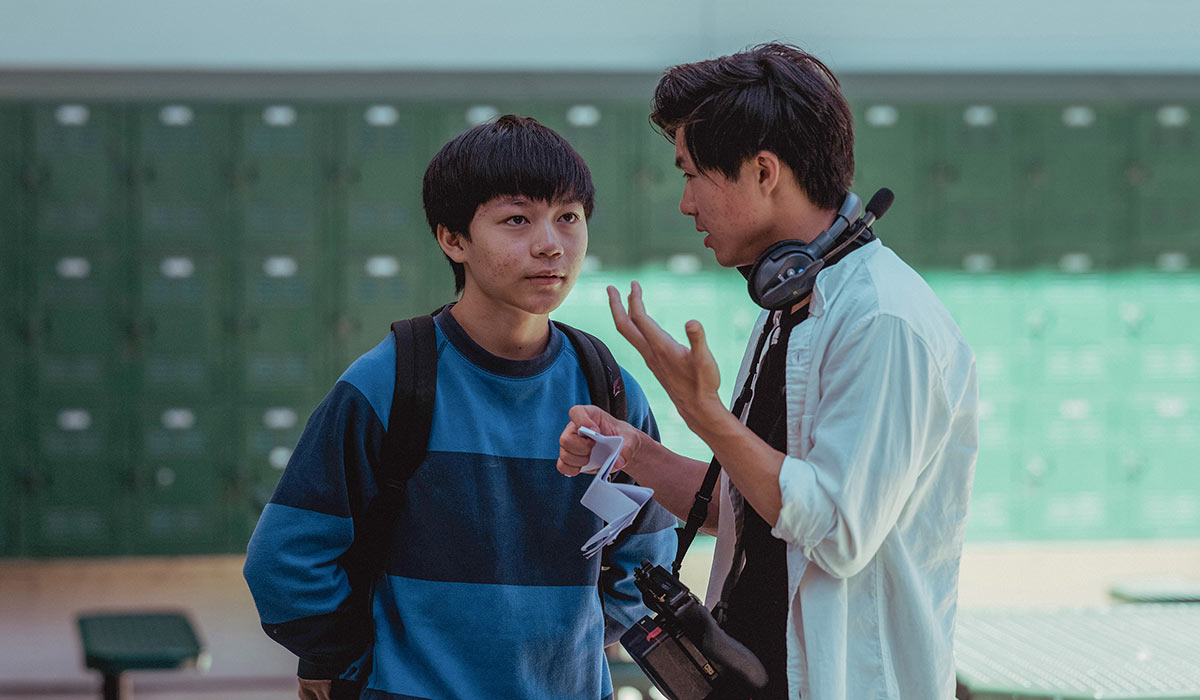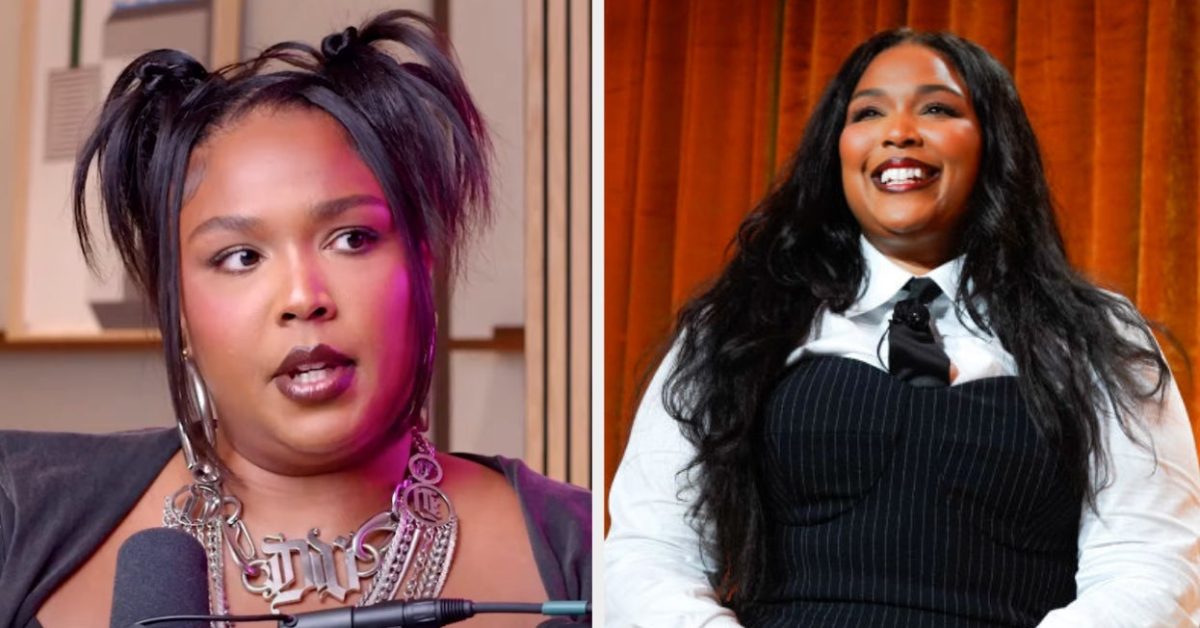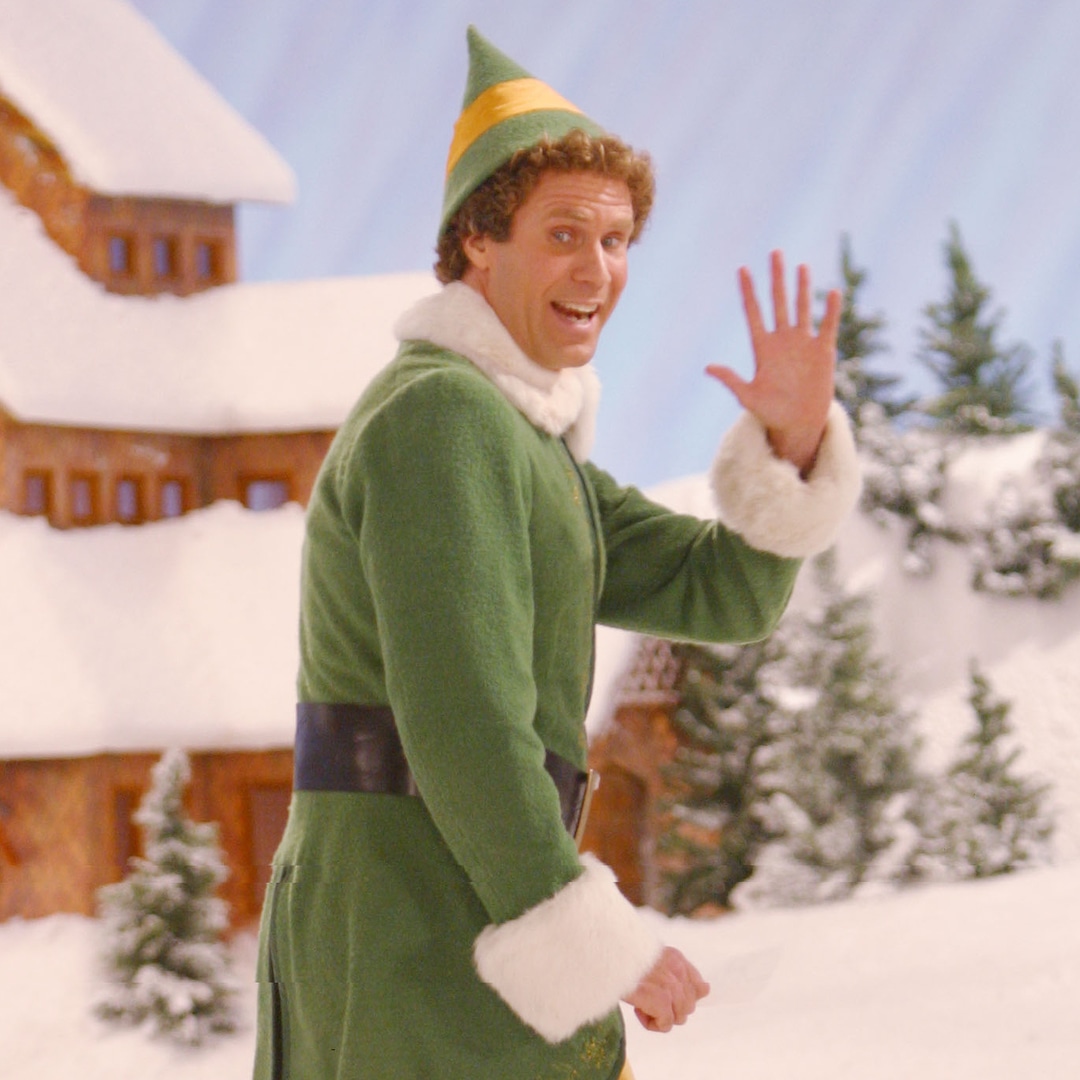
Sean Wang Could “Never Have Imagined” His Breakout Year [Interview]
Aug 7, 2024
The popular phrase may be “Good things should come to those who wait,” but that doesn’t mean they will. Especially in the movie business. Whether you are trying to sell your first screenplay to a studio or shepherded an indie feature to financing, patience usually only works for those with the talent to back it up. Considering the year Sean Wang is having, he clearly has both.
READ MORE: “Dìdi” Review: Sean Wang bares his heart and soul in a crowd-pleasing coming-of-age tale [Sundance]
In January, the 30-year-old filmmaker saw his narrative feature debut, “Didi,” premiere at the 2024 Sundance Film Festival to rave reviews. Just a few days later, he earned his first Academy Award nomination in the Documentary Short category for “Nǎi Nai and Wài Pó,” a film about his paternal and maternal grandmothers. Another then, within less than a week, “Didi” took the Sundance Audience Award and a Special Jury Award in the U.S. Dramatic category. But his celebrated autobiographical feature wasn’t a project he raced to make. In fact, he didn’t try to even get it off the ground until after he’d spent five years writing the screenplay.
“It wasn’t like I was banging on the doors of Hollywood trying to get it made. If anything, I was like, I’d want to make this outside of that whole system,” Wang says. “And the first producer that came on board, Carlos Lopez Estrada, I had known him for three or four years before I sent the script to him. I worked on his second feature film “Summertime,” and it was also very small indie. But I think we learned on that movie that we share a very, I think similar taste and point of view. And that movie stars 27 young spoken word artist who’ve never been in a movie before. And so I was just kind of like, ‘Look, if there’s someone who’s going to support this idea of casting my grandma and filling this movie with a bunch of non-actors, I think he gets it.’ And so it was really that ethos that I took to the movie. It wasn’t about having this little movie trying to get to A-list Hollywood to make this tiny movie. It was ‘Let’s keep this small, let’s keep this homegrown, let’s keep this feeling like I’m just expanding my circle of friends.’ And I think we kept it like that all throughout the making of it and every person that we brought on, even our financiers. It really just felt like you have to understand the type of movie we’re making, otherwise, you don’t get to be a part of it.”
With “Didi” doing strong business in limited release so far, Wang took some time this week to catch up with The Playlist about what is turning out to be when he describes as a “surreal” 2024. And, for anyone attempting to make their dream project come to life, Wang has a lot of advice and experience to share on how to keep your vision intact. Take notes.
_____
The Playlist: How are you feeling over having one of the best-reviewed movies of the year?
Sean Wang: I feel good, man. It’s very surreal. I will say that. It’s very, I don’t know, it’s all downhill from here.
You’ve had an amazing, I want to say eight, 12 months? You earned your first Oscar nomination and “Didi” debuts at Sundance within days of each other. How have you processed all this?
I haven’t processed any of it. I don’t know if I ever will. It’s crazy, Greg. It’s like any time someone says the stuff that has happened to me over the course of this year, I’m kind of just like, “Dude, I could have never imagined that.” But I do think the thing that I really latch onto is that the Oscar nom for the short and this movie doing well, we made it so small and sort of intimate and in many ways outside of the industry. Obviously, now they’re sort of in the spotlight of the industry and the system of it all. But both of them were made kind of in a way that felt very homegrown and felt very much [like] making movies with your friends growing up. I really love our cast and crew. And so for everyone to get that sort of lift feels very special.
How hard was it to get “Didi” made? Was it harder than you thought it would be to get the financing, to get producers, to get everyone involved?
The short of it is actually no, but I think there were so many things that I experienced along the way where I was like, “Oh, that’s interesting. That’s the customary way to do it. Why?” And I would always sort of learn about the way that movies were put together. And sometimes I’d be like, “Oh, I see why they do that.” And then with our movies sometimes it’d be like, “I don’t like that. I don’t like the way that that’s the industry standard. We should just do it our own way.” And I think because we kept it small enough, we could make certain decisions that didn’t have to be at the mercy of any sort of financier or sort of the throes of the industry. I think the bet that I took with this movie was, and I think the reason it was maybe not as hard as it could have been was because I got to learn from directors who were a little older than me and who went through the process and I got to really pick their brains.
I started writing this when I was 22, 23, and I really took my time with the script. I wanted to have the experience as a first-time filmmaker, hopefully, to take it to the development labs. Obviously, Sundance has their screenwriting labs, which I did. SF Film has Rainin Grant. I did the Gotham Project Week, and it was always the hope with this movie to take it slow and be patient with it. And I was writing it on and off for five years, but I didn’t try to get it made until 2022. It wasn’t like I was banging on the doors of Hollywood trying to get it made. If anything, I was like, I’d want to make this outside of that whole system. And the first producer that came on board, Carlos Lopez Estrada, I had known him for three or four years before I sent the script to him. I worked on his second feature film “Summertime,” and it was also very small indie. But I think we learned on that movie that we share a very, I think similar taste and point of view. And that movie stars 27 young spoken word artist who’ve never been in a movie before. And so I was just kind of like, “Look, if there’s someone who’s going to support this idea of casting my grandma and filling this movie with a bunch of non-actors, I think he gets it.” And so it was really that ethos that I took to the movie. It wasn’t about having this little movie trying to get to A-list Hollywood to make this tiny movie. It was “Let’s keep this small, let’s keep this homegrown, let’s keep this feeling like I’m just expanding my circle of friends.” And I think we kept it like that all throughout the making of it and every person that we brought on, even our financiers. It really just felt like you have to understand the type of movie we’re making, otherwise, you don’t get to be a part of it. I think because we did it it actually made our movie a lot more fun, more successful, more honest, everything. It made everything better.
Were you writing it in secret? Was it under the radar from even your friends? What was that process as a writer?
Well, it was the idea that I was kind of excited about. The very seed of the idea was what if you took a movie like “Stand By Me,” but had it star kids who looked and talked and felt like me and my friends and set it in a place that I knew, which was the Bay Area where I grew up, and just making it hyper-specific to that, what does that do to the story? That was the exercise. And I felt like, “O.K., there’s something here.” I transferred to USC when I was a junior in college, and I remember I had professors there who would show us things they worked on. They were like, “This movie from beginning to end took eight years” and I was like “Eight years!” It was not to discredit anyone. I was like, “I don’t think anybody has seen this movie, but this was eight years of your life.” It instilled a very deep fear in me in a way. I was like, “That’s how long it takes to make a movie.” So I was kind of like “If I’m going to make a movie and it’s going to take eight years, I should start writing it now.” In the very early onset of my career, just kind of fresh out of school-ish, while I’m chipping away on my shorts and commercials and music videos, I knew I was going to have to cut my teeth in the shorts and I wanted to, but I was like, “I’m going to always make sure I dedicate some time to this script that was reverse engineered to be something that was makeable and could be made at a reasonable budget so that if seven, eight years from now when I’ve made enough shorts and had enough cachet as a filmmaker and director from the shorts to be like, oh, what stories do you want to tell?” Instead of being like I want to make features where I need to work with a writer, it was like, “Oh, now I’ve grown and I’ve been chipping away at this script that I care about.” Hopefully, over the course of five years, it will then get to a place where I’m like, “O.K., I can make this. I’m now a filmmaker who is actually mature enough and capable of making a feature film.” Even if the script was ready when I was 20, I don’t think I could have made it when I was 23. I just wasn’t mature enough. I wasn’t confident enough. But living with it for six and seven years, I worked on enough things that I think I felt like I was growing as a filmmaker. And so by the time that I was confident enough as a filmmaker to make a feature, it was like the script grew with me and I had a script that was also ready. And when I pitched it, if people liked it, it was like, “Well, you’re not going to go find another director to make this movie.” It’s clearly, “Sean’s never directed a movie, but he’s the perfect director for this.”
Right. you’re not giving up your own story to somebody else to tell. But one of the amazing things about both your short and your feature is even though one is a doc and one is a narrative they both have a very unique and similar aesthetic. I’m not asking you to give away any trade secrets, but when you go to set and when you’re shooting, is there something that’s foremost in your mind? Is it the tone of the actors or the subjects? Is it how you shoot it?
Well, I think it’s also everything in prep. I think I’ve been working with my cinematographer, Sam Davis, for 10 years. We met on day one at film school. And, I think in prep with all of your collaborators, you talk about tone and emotion and feeling and what you’re trying to accomplish on the day. What is the feeling the scene needs to have or the movie needs to have? And then again, you’re prepping everything so that on the day, hopefully, it’s just alchemy. And you hear a lot of filmmakers say this, but it’s doing all the prep so that on the day you can feel confident enough to throw it all away. Maybe I got that from documentaries too, but I think it was learning that on the day, don’t get married to the prep. If what you’re seeing in front of you is not working, fix it. Don’t get attached to the plan. And I think some days we had to do that. It was like, “The plan is bad. Well, let’s figure this out.” And I think that’s something I learned at the director’s lab too. I think sometimes you’re attached to your prep, but the thing that is presented in front of you ends up not being the best version of it. So you have to again, be present and just be like, “Oh, this actually isn’t working. Let’s figure it out.”
Were there any surprises that you discovered on set that made it into the movie that you were not expecting but maybe really worked?
There were things that I was surprised didn’t work that every movie has and they end up cutting. I think it was just certain takes. Sometimes I would shoot something and I’d be like, “That’s the take that’s in the movie. Circle that.” There was a take, I remember when Chris gets home from the playground scene and it’s when he and his sister get into the sort of real fight, and we shot a closeup of Isaac, and it’s when he’s like, “Why are you so mean to me? “And it was like, “Oh, we got it on set. We really got the performance there.” And I was like, “Oh, that’s going to be such a powerful moment in the movie.” And that scene, even though it seemed deceptively simple, was one of our hardest scenes to cut because it felt strange cutting to his closeup for some reason because it just felt really melodramatic. But it was like everything around that take, around that shot that wasn’t working. So there was stuff like that that surprised me.
Let’s talk about Izaac Wang, who plays Chris. How many actors do you screen or look at submissions for this role? Do you remember?
I mean so many, but Izaac was the first kid that we saw too, which is surprising, but also not really because out of everybody in the movie, he is a trained actor. He has been acting since he was eight and has been in children’s movies. He was in some Disney things. He was in “Clifford and the Big Red Dog.” And I think my initial thinking was, “I don’t want someone who’s a trained actor because I want someone who’s a real kid who could really see the ups and downs and the chaos of adolescents.” And oftentimes child actors are very polite and proper. But Isaac, as soon as you meet him, you realize, “Oh, he’s a child actor” but he’s not. Like he’s kind of a punk in the best way. But yeah, you see our casting call for a 13, 14-year-old Asian American boy, his agent’s obviously going to submit him for this role. And I think the thing with Izaac was he’s not like Chris at all. I mean, there’s overlap, but I think Izaac is so confident and charismatic and very cool. And Chris is a little bit more meek and insecure and vulnerable and angsty. And I think it was really months of working with Izaac to be like, “O.K., he’s really special. But I think if we can chisel away some of the confidence that Izaac has, and sure there’s Chris’s vulnerability underneath all of that, then it would work.” But it took a lot to get there. And it was a lot of homework on Izaac’s part. He really put in the work to be Chris. It wasn’t just like we found a kid. He’s amazing. It was like months and months of work.
Was there a moment on set that you realized, yep, all that work paid off?
I had the really, really incredible privilege and luxury of doing the Sundance Director’s Lab five weeks or six weeks before we shot the movie. And it cut into our prep time. And I remember my producers were like, “Are you sure you want to do that because that’s two weeks of prep that you’re losing?” And I was like, “No, I think this is prep. I think this is going to be good for the movie.” And for the director’s lab, I got to bring Izaac and I brought Shirley [Chen] too, who plays Vivian, and it was this week-long intensive [period] that was basically a rehearsal time that I had with them. And up until we hadn’t officially cast Izaac yet. And I kind of knew I was like, “O.K., I think he’s right, but he has to carry the entire movie on his back. He’s in every scene.” So we were just kind of like, “We need to flip every stone just to do our due diligence.” And it was that thing. I saw him in person and after that week, I felt confident in that, “Oh, not only is he a great actor and takes direction well and understands the character, but he is again, both a punk and responsible.” He knows the weight of what we’re asking from him, which is not a simple thing. He is 14, 15-year-old. He’s in every scene of the movie. And it’s a lot that we’re asking him to put on his back. And I think he was sort of ready for the role, the challenge, his first lead role ever. I am very proud of him. I see the work that he put in.
Do you have any other scripts just standing by hoping, dreaming, and ready to go? And do you expect to do more documentary projects in the future or was that sort of like a one-off?
I’d love to keep doing more docs and more narrative and whatever excites me. I don’t have the next thing ready to go, but I’m writing it right now. It’s actually an idea that I had before this movie, and I was writing the first draft of it and I was like, oh, it’s too big for your first movie. It’s just kind of what I was saying earlier. If I write this and try to make this movie and my shorts all coalesce, I’m going to hit that point and no one’s going to let me make this. It’s just too big. But as soon as “Didi” wrapped, that [idea] kind of perked back up and I’m still very excited about it. So, hopefully, it’s something that I can stay excited about and get to make in the next few years.
“Didi” is now in limited release
Publisher: Source link
"All Of This Came Out Of Nowhere": Lizzo Publicly Responds To Sexual Harassment Lawsuits After Being Dismissed From A Case
"We're continuing to fight the other claims."View Entire Post › Disclaimer: This story is auto-aggregated by a computer program and has not been created or edited by filmibee.Publisher: Source link
Dec 27, 2024
This Fan-Favorite Elf Quote Almost Didn’t Make It Into the Film
11. Determined to maintain the old school aesthetic, Favreau told Rolling Stone he didn’t want to make the film “a big CGI extravaganza," only using the technology to add some snow. “I like motion-control, models, matte paintings,” he explained. “It…
Dec 27, 2024
Guess The Missing Word: Christmas Song Titles
The holidays are here, and there's no better way to ring it all in than a seasonal song or two. So test your yuletide knowledge by identifying the missing word in the 14 holiday songs below. Good luck! Disclaimer: The…
Dec 26, 2024
Score an Extra 40% off Fashion & More
Our writers and editors independently determine what we cover and recommend. When you buy through our links, E! may earn a commission. Learn more. Even on Christmas Day, Anthropologie has your back with an extra 40% off sale that’s practically a…
Dec 26, 2024











